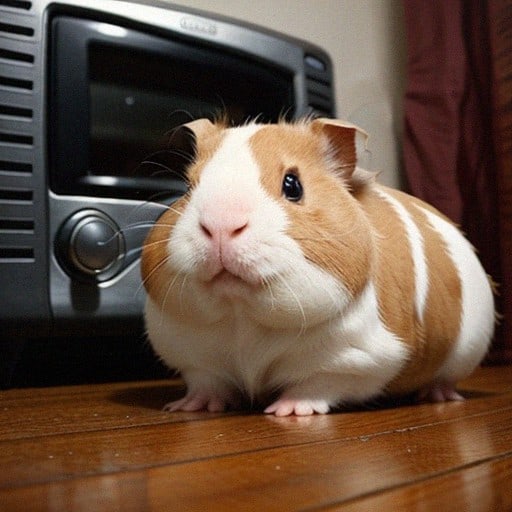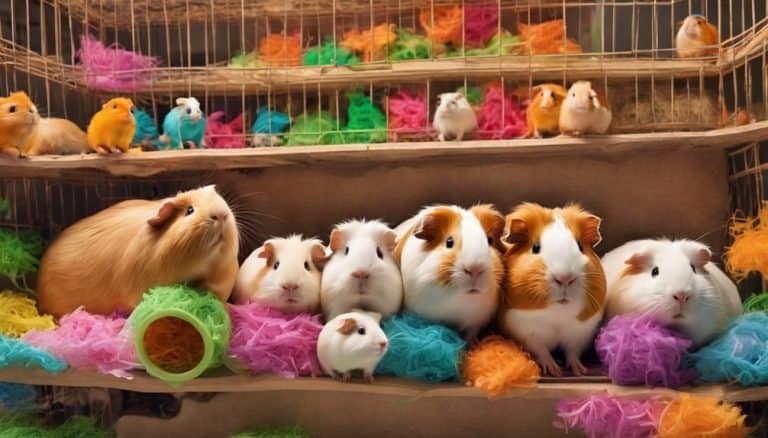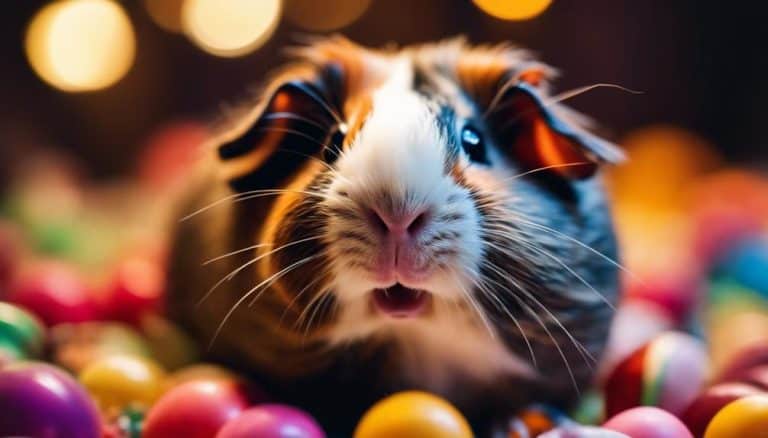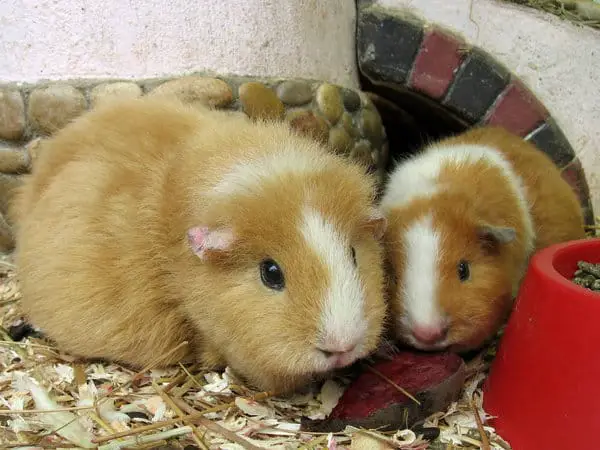Everything You Need To Know About Guinea Pig Teeth
Guinea pig teeth are an important part of their overall health and wellbeing. These animals have four distinct types of teeth: incisors, molars, canines, and premolars.
Guinea pigs need to chew on items such as hay or grass to keep their teeth trimmed down and healthy. All guinea pigs should have regular dental check-ups with a veterinarian to ensure that their teeth are in good condition and that they don’t suffer from any tooth decay or periodontal disease.
It is also important to provide your guinea pig with plenty of chewable items to help keep the length of their teeth in check.
If your guinea pig’s teeth become overgrown, then it can lead to serious health conditions that may require surgery or other medical treatments. By providing proper dental care for your guinea pig, you can ensure that they stay healthy and happy in the long run.
What’s “Normal” for my Guinea Pig?
When it comes to guinea pigs, there are a few things to keep in mind when it comes to what is considered normal. Generally speaking, a healthy guinea pig should have a glossy coat, bright eyes and an active demeanor.
They should also have 20 teeth that are kept clean and in good condition. They should be eating hay and fresh vegetables regularly, as well as given plenty of fresh water each day.
Guinea pigs need plenty of exercise and the opportunity to explore their environment. It’s important for them to have access to hiding places and enough room to move around freely.
They also need some form of enrichment such as chew toys or other items they can explore and interact with.
Overall, providing a stimulating environment with proper care is what will keep your guinea pig happy, healthy and functioning at its best.
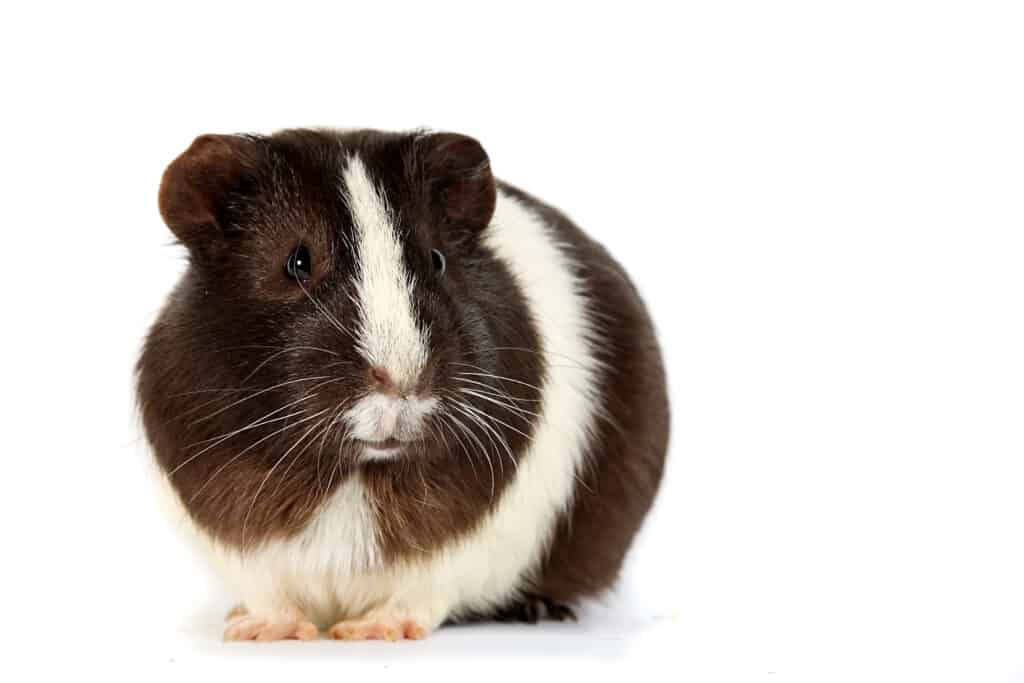
How long should guinea pig teeth be?
Guinea pigs have a unique set of teeth that are constantly growing.
In order for them to stay healthy, their teeth should be kept at an appropriate length. Guinea pig teeth can grow up to 1 inch long if not regularly trimmed.
It is important for the health of your guinea pig that its teeth are kept at a reasonable length and shape, so it can properly eat and digest its food.
If you notice your guinea pig’s teeth getting too long, you should bring it to a vet or an experienced animal groomer to get them trimmed.
Keeping your guinea pig’s teeth short will ensure that they remain healthy and comfortable, as well as preventing any potential dental issues from developing in the future.
With regular care and attention, you can keep your guinea pig’s teeth at a healthy length and make sure they stay strong and healthy for years to come.
Can you brush a guinea pig’s teeth?
Brushing a guinea pig’s teeth is possible, but not recommended. Guinea pigs have very delicate teeth, which can be easily damaged if brushed too hard. Plus, their teeth are naturally long and need to wear down over time.
This means brushing them could cause them to grow even longer and create tooth problems.
If you do decide to brush your guinea pig’s teeth, only the front teeth should be brushed – the back ones should be left alone. Dental problems such as tartar buildup and plaque can occur in guinea pigs just like humans, so it is important to keep track of their dental health and act accordingly if needed.
You should also make sure that any toothbrushes used on your guinea pig are soft-bristled, designed specifically for animals, and contain no harsh chemicals or fragrances.
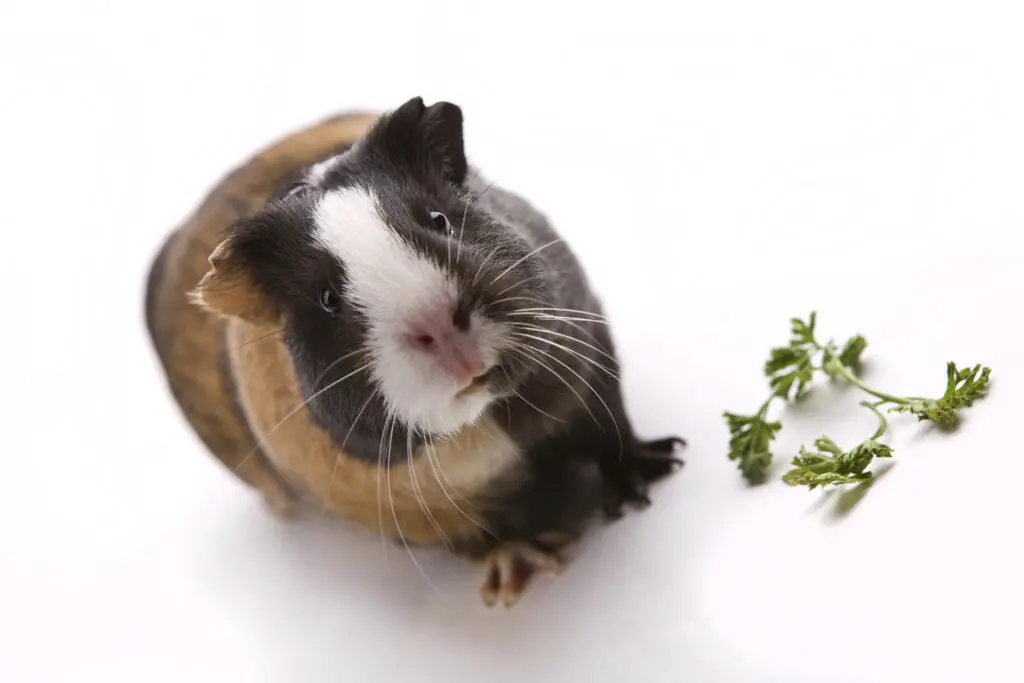
Just What Do Guinea Pigs Use Their Teeth For?
Guinea pigs need to keep their teeth in good condition, and they use them for a variety of purposes. They are mainly used for gnawing and chewing on food.
Guinea pig teeth are constantly growing, so it is important for them to chew on hard items such as hay or vegetables in order to keep their teeth from overgrowing.
They also use their teeth for grooming themselves and other guinea pigs, as well as grasping items with their front paws.
Their incisors can be used to dig in the ground or scrape bark off trees. All of these activities play an important role in the health and wellbeing of a guinea pig; if their teeth are not kept under control then it can lead to serious problems such as infections or complications with eating.
By regularly providing your guinea pig with objects to chew on you can ensure that it maintains healthy teeth and stays happy and healthy!
How Long Do Guinea Pig Teeth Grow?
Guinea pig teeth grow constantly, so it is important to give them plenty of opportunities to grind down the length of their teeth.
Without this chance to grind down their teeth, they can become too long and cause issues with eating or dental pain, which can be life-threatening if not treated appropriately.
To make sure your guinea pig has healthy teeth, provide them with items like hay or chew toys that they can use to help grind down the length of their guinea pig teeth.
This will help keep your guinea pig’s teeth at a healthy length and allow them to enjoy the treats they love like fresh veggies and fruits without any discomfort.
What Are The Most Common Teeth Problems in Guinea Pigs?
Guinea pigs are prone to tooth problems, so it’s important to take proper care of their dental health. The most common teeth problems in guinea pigs are malocclusion and broken teeth.
Malocclusion is a dental disease that occurs when the upper and lower jaw grow at different rates, resulting in misalignment of the teeth.
Broken teeth can occur due to chewing on hard objects or as a result of malocclusion. Other dental problems that can affect guinea pigs include overgrown incisors, missing teeth, and abscesses.
Guinea Pig Teeth – How To Keep Them Healthy
Guinea Pig teeth are a common source of dental problems for guinea pigs. To keep your guinea pig’s teeth healthy, it is important to regularly check your guinea pig’s mouth and teeth.
Healthy guinea pigs should have their top teeth slightly overlapping the bottom teeth when their mouths are closed. If the top teeth start to overgrow, it could be a sign of dental issues and should be addressed immediately.
Overgrown teeth can cause discomfort and can lead to further health complications if not treated properly. It is important to take preventive measures and make sure that your guinea pig’s diet includes hay which helps keep their teeth in good condition.
Regular check-ups by a qualified veterinarian will also help prevent any potential dental problems in the future.
With proper care, you can ensure that your guinea pig has happy, healthy teeth for years to come!
How to Check your Guinea Pig’s Teeth
Checking your guinea pig’s teeth is an important part of keeping them healthy. To check your guinea pig’s teeth, first lift their head and look at the front teeth. You should be able to see two long teeth that meet in the middle.
These are called incisors, and they should be evenly aligned and not overgrown or misshapen.
Then move to the sides of the mouth and look at the back molars. The back teeth should be flat and even, with no sharp points or jagged edges.
If you notice any changes in alignment or discoloration on your guinea pig’s teeth, it may be a sign of dental disease or infection and you should take them to a vet for further examination.
Keeping an eye on your guinea pig’s teeth can help prevent problems before they become serious.
Conclusion: Prevention is key for Guinea Pig Teeth Problems
The conclusion of guinea pig teeth problems is that prevention is key. Guinea pigs rely on their teeth for all sorts of activities, from eating and grooming to playing, so it’s important to keep their teeth healthy.
Regular check-ups at the vet are a great way to ensure your guinea pig’s dental health is on track.
Additionally, providing them with plenty of hay and other hard chewables can help keep their teeth in line. Be sure to avoid any treats high in sugar or starch as these can contribute to tooth decay.
Taking the time to prevent these issues now will ensure that your guinea pig has a happy and healthy life for many years to come!


